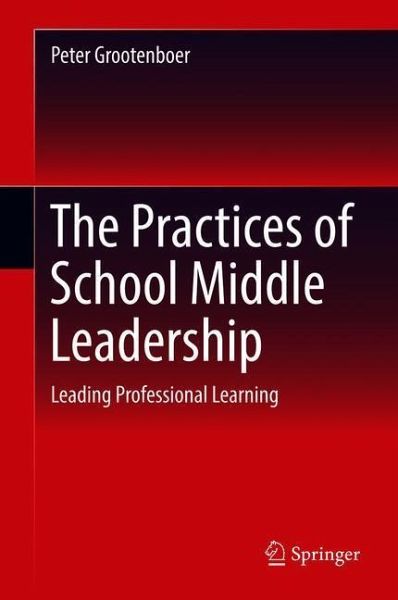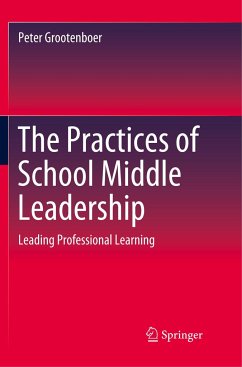
The Practices of School Middle Leadership
Leading Professional Learning
Versandkostenfrei!
Versandfertig in 6-10 Tagen
76,99 €
inkl. MwSt.
Weitere Ausgaben:

PAYBACK Punkte
38 °P sammeln!
This book uses practice theory to examine the role of 'middle-leadership'. In particular, it investigates the practices of 'leading in the middle' in the cultural-discursive, material-economic, and social-political domains - i.e., the sayings, doings and relatings of middle leading. This perspective acknowledges the ecological arrangement of leading practices in schools, and the necessity of considering the unavoidable reality of the site. The analysis is used to promote the need to view leading in the middle as a form of praxis - a morally and ethically informed practice that requires thought...
This book uses practice theory to examine the role of 'middle-leadership'. In particular, it investigates the practices of 'leading in the middle' in the cultural-discursive, material-economic, and social-political domains - i.e., the sayings, doings and relatings of middle leading. This perspective acknowledges the ecological arrangement of leading practices in schools, and the necessity of considering the unavoidable reality of the site. The analysis is used to promote the need to view leading in the middle as a form of praxis - a morally and ethically informed practice that requires thoughtful decision-making and action in situations where the outcomes are not always clear. This book focuses on the practice of leading for those in 'middle management' positions in primary and secondary schools, such as those responsible for curriculum leadership, including senior teachers, assistant principals, and curriculum leaders. In their positions that bridge 'management' and 'the classroom' they are significant leaders in promoting and sustaining effective pedagogy for good learning outcomes, and they have to continue to provide high-quality teaching in their own classrooms, while simultaneously being a mentor, coach, supporter and evaluator for their colleagues.












